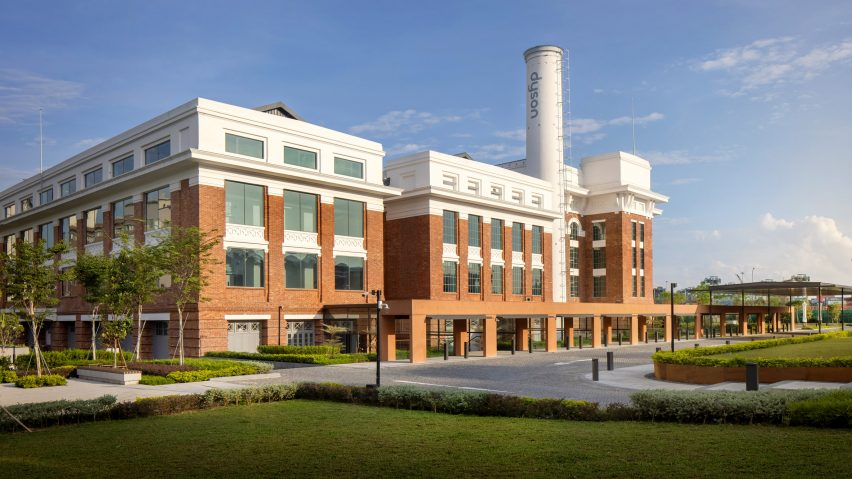
M Moser Associates transforms interior of Singapore power station into Dyson HQ
International practice M Moser Associates has overhauled the interior of a repurposed power station in Singapore to create the global headquarters for technology company Dyson, blending the building's industrial heritage with contemporary materials.
The station's transformation, which was led by W Architects with heritage consultant Studio Lapis, provides Dyson with 140,000 square feet (13,006 square metres) of office space.
M Moser Associates' interior fit-out was both shortlisted and recently named public vote winner in the large workspace interior category of Dezeen Awards 2022.
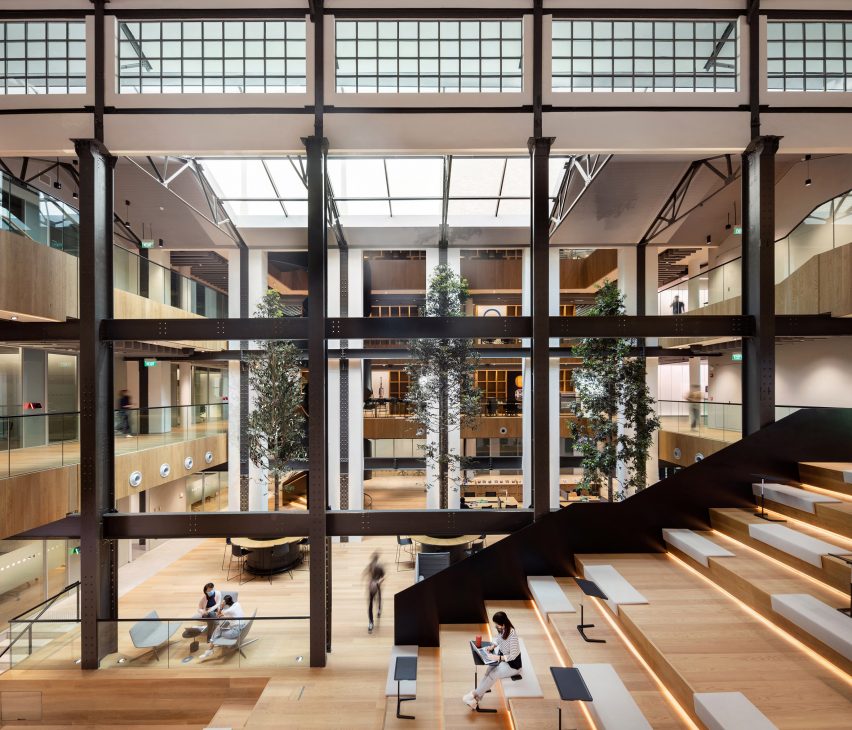
Originally built in 1926 in the Edwardian style, the coal-fired St James Power Station was Singapore's first municipal power plant and remains an important heritage landmark, decommissioned in 1976 and used as a warehouse for nearly two decades.
During the transformation of Singapore's industrial harbourfront into a commercial area in the 1990s, the plant became a bustling nightlife venue before closing in 2018, with the project to redevelop it beginning in 2019.
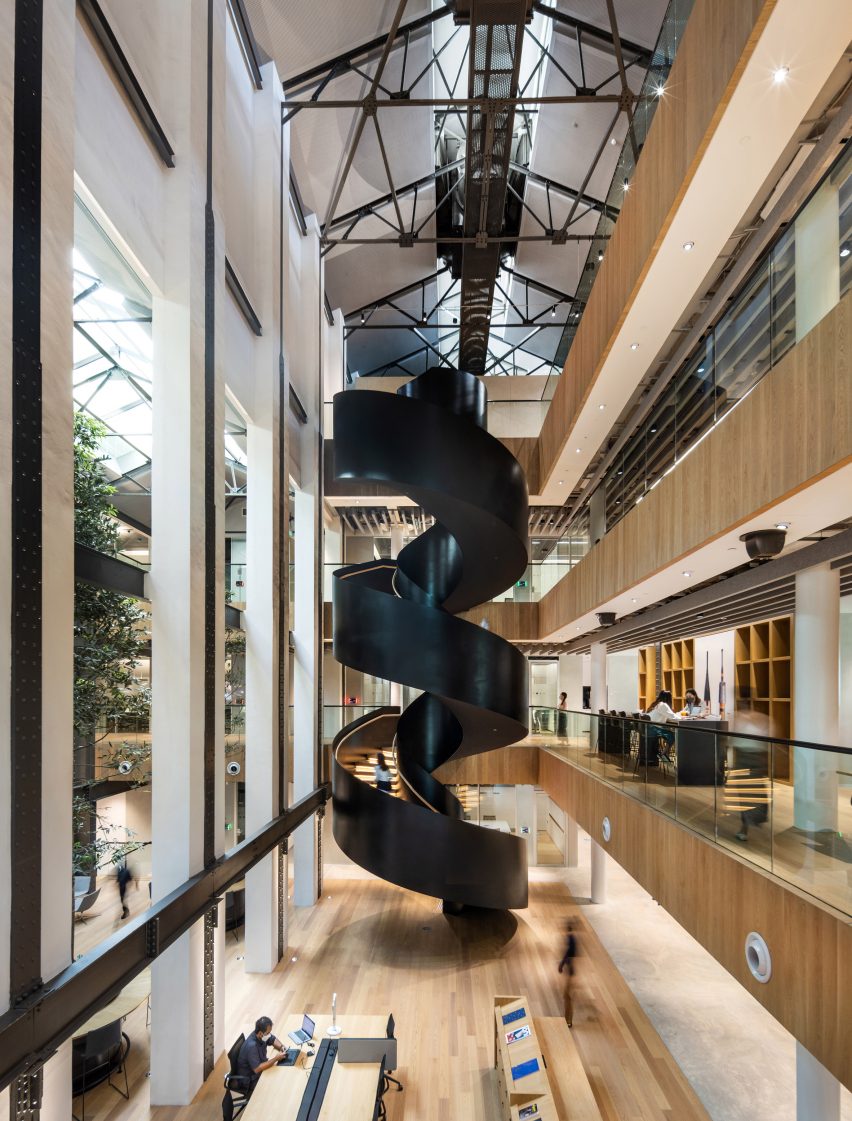
The focal point of M Moser Associates' design was the former turbine hall, which has been used to create a dramatic, four-storey atrium framed by exposed black steelwork and a sculptural spiral staircase.
Sheltered underneath tall trees in raised planters that double as desks, a cafe sits alongside an area of amphitheatre-style seating to encourage informal gathering.
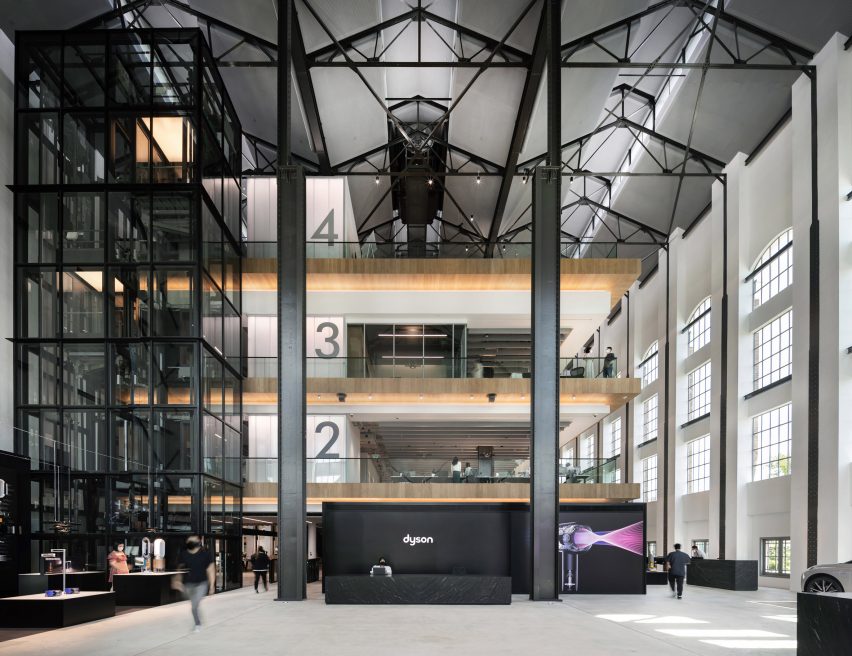
"A dramatic four-storey industrial space, inspired by the quadrangles of university campuses, this central space serves as a circulation hub, connecting all areas," explained the practice.
"Employees enter the Turbine Hall as they head to work, [and] are greeted with a symbolic reminder of the building's new revitalised purpose – to spark design and technological innovation," it continued.
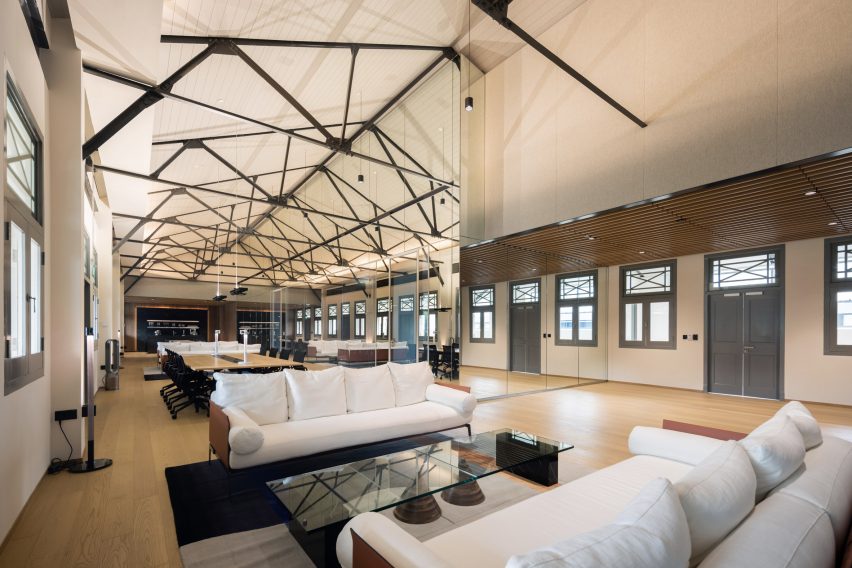
Organised around this central space, four levels are zoned into a mixture of offices, laboratories, and social spaces, designed to provide a range of more private, quiet spaces and collaborative areas.
On the top floor, spaces benefit from higher ceilings underneath the exposed, black steel trusses of the plant's roof structure, and above this, a landscaped rooftop terrace provides external gathering space overlooked meeting rooms with full-height glazing.
Externally, the building's brick and paintwork has been restored with Dyson's logo emblazoned on a chimney, and the new material choices seek to reference this industrial heritage.
A simple palette of dark stone, wood and metal complements and celebrates the contrast with the exposed structure, such as in an atmospheric meeting room housed at the base of one of the brick chimneys.
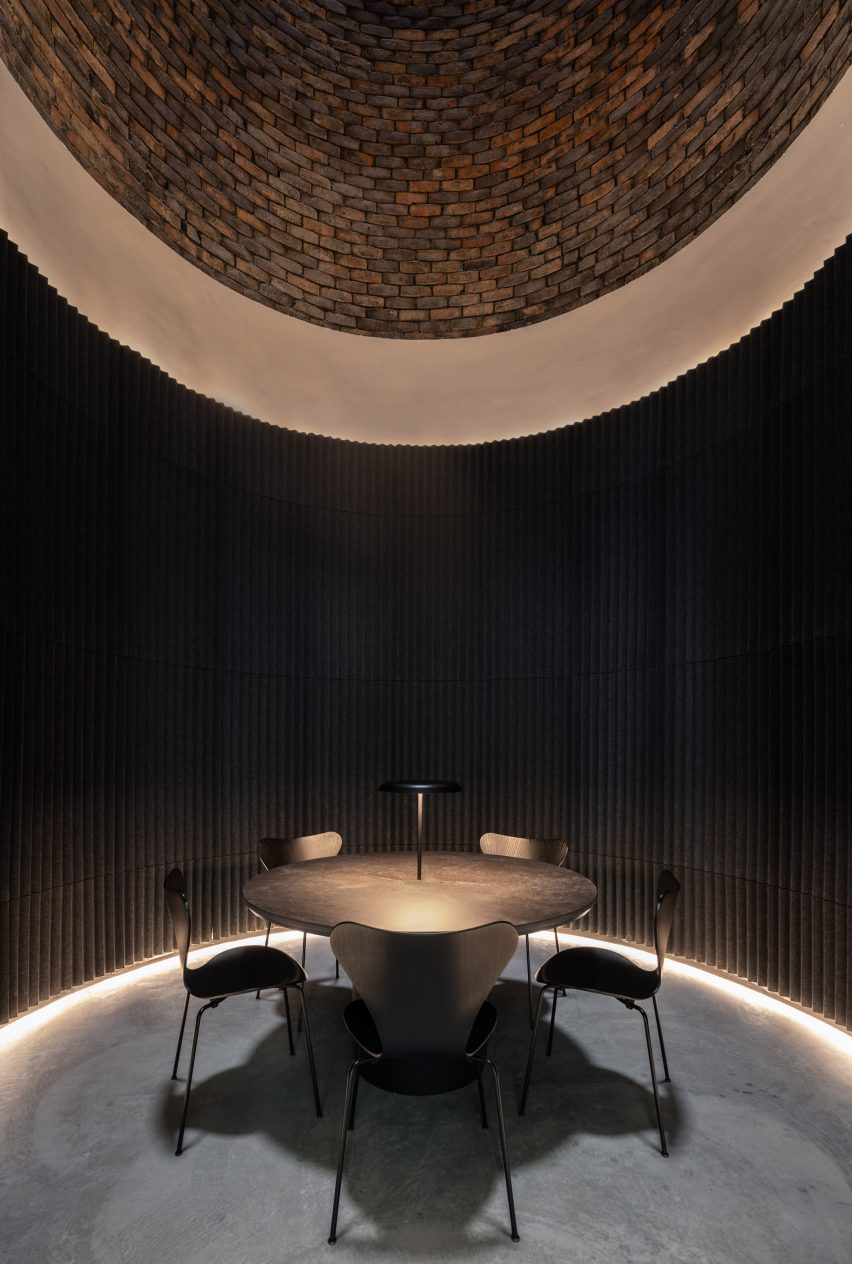
"Concrete flooring and black metal speak of the building's past, while technical materials like polycarbonate, metal mesh and mirrored cladding announce its new future," said the practice.
"This sympathetically repurposed building is a rare example of architectural renewal and urban sustainability," it continued.
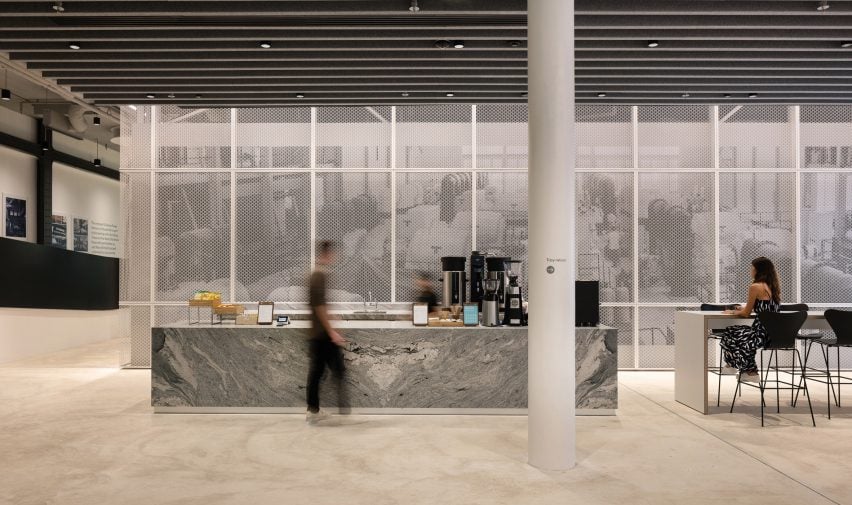
In London, another historic coal-fired plant – the iconic Battersea Power Station – has recently reopened following an extensive redevelopment by WilkinsonEyre, and now houses shops, office space and apartments.
The images are courtesy of Dyson.
Project credits:
Base building architect: W Architects
Interior architect: M Moser Associates
Heritage consultant: Studio Lapis